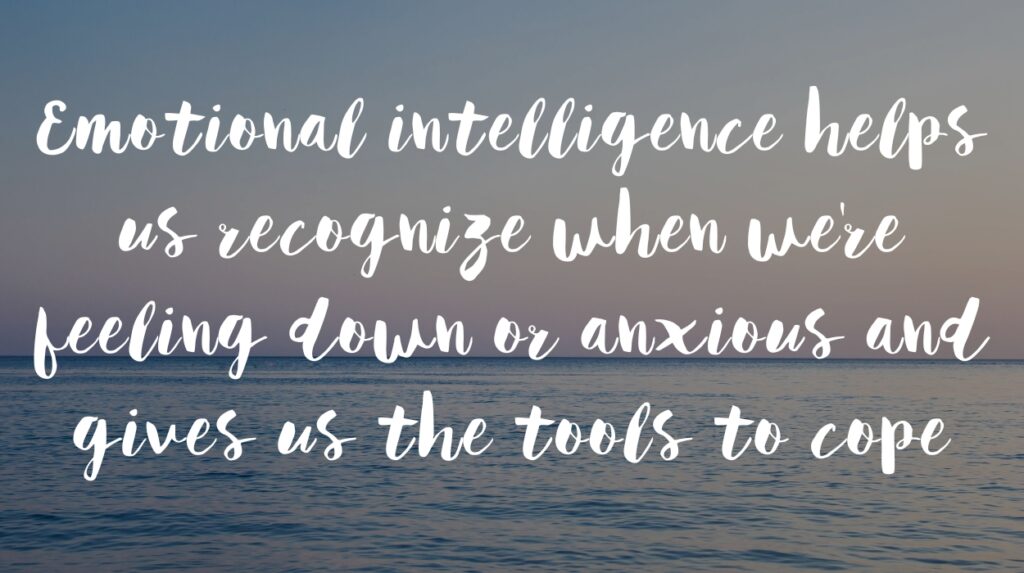Emotional Intelligence Mastery: A Guide To Elevate Your Inner Strength For Well-Being
Unlock the power of emotional intelligence to navigate life's challenges. Discover simple yet effective techniques for emotional wellness.
In the complex landscape of mental health, emotional intelligence serves as a guiding light, offering solace and resilience to those navigating the challenges of depression, anxiety, and other mental health issues. It’s like having a good friend who helps us navigate life’s ups and downs. Understanding and nurturing emotional intelligence can empower individuals to better manage their emotions, cope with stress, and build healthier relationships.
Why is Emotional Intelligence Important For Mental Health?
Emotional intelligence plays a pivotal role in safeguarding our mental well-being. It enables us to recognize and understand our own emotions and those of others, fostering empathy and compassion. Here are some reasons why emotional intelligence is crucial for mental health:
- Self-Awareness: Emotional intelligence allows us to recognize our own emotions, understand their impact on our thoughts and behaviors, and identify triggers for mental health challenges.
- Self-Regulation: By developing emotional intelligence, we can better manage their emotional responses, reducing the risk of impulsive reactions and negative coping mechanisms.
- Empathy: Understanding the emotions of others fosters deeper connections and more meaningful relationships, providing vital support during difficult times.
- Stress Management: Emotional intelligence equips us with coping strategies to effectively manage stress, promoting resilience and mental well-being.
- Conflict Resolution: With heightened emotional intelligence, we can navigate conflicts more constructively, fostering healthier communication and interpersonal dynamics.
How Does Emotional Intelligence Affect Mental Health?

Emotional intelligence acts as a shield against the storm of mental health challenges, offering resilience and fortitude in the face of adversity. Here are some ways in which emotional intelligence impacts mental health:
- Improved Coping Skills: Individuals with higher emotional intelligence are better equipped to cope with stress, setbacks, and negative emotions, reducing the risk of developing mental health issues.
- Enhanced Well-Being: By understanding and managing our emotions effectively, we experience greater overall well-being and life satisfaction.
- Stronger Relationships: Emotional intelligence fosters empathy, communication, and interpersonal skills, leading to healthier and more supportive relationships.
- Reduced Anxiety and Depression: Developing emotional intelligence can mitigate symptoms of anxiety and depression by promoting self-awareness, self-regulation, and adaptive coping strategies.
Ways To Enhance Emotional Intelligence For Good Mental Well-Being
- Practice active listening: Truly focus on what others are saying without distractions.
- Journaling: Write down thoughts and feelings to gain insights and clarity.
- Mindful breathing: Take deep breaths to calm the mind and body during stressful moments.
- Recognize triggers: Identify situations that provoke negative emotions to better manage them.
- Engage in hobbies: Pursue activities that bring joy and relaxation, like painting or gardening.
- Practice empathy: Put yourself in others’ shoes to understand their perspectives and feelings.
- Set boundaries: Establish limits to protect your emotional well-being and prevent burnout.
- Seek support: Reach out to trusted friends or family members for encouragement and guidance.
- Challenge negative thoughts: Question irrational beliefs and replace them with more positive ones.
- Practice gratitude: Reflect on things you’re thankful for to cultivate a positive mindset.
- Take breaks from technology: Disconnect from screens to reduce stress and foster real connections.
- Prioritize self-care: Dedicate time each day to activities that promote relaxation and rejuvenation.
- Develop emotional vocabulary: Expand your range of emotions to better articulate and understand feelings.
- Practice assertiveness: Express thoughts and feelings in a direct and respectful manner.
- Cultivate self-awareness: Reflect on your thoughts, feelings, and behaviors to gain insight into yourself.
- Focus on the present moment: Practice mindfulness to stay grounded and reduce anxiety about the future.
- Practice forgiveness: Let go of resentment and anger to free yourself from emotional burdens.
- Practice problem-solving: Break down challenges into manageable steps to find solutions.
- Engage in physical activity: Exercise releases endorphins, which can improve mood and reduce stress.
- Get enough sleep: Prioritize restful sleep to recharge your body and mind for the day ahead.
Emotional intelligence is a powerful ally in the journey toward mental wellness, offering invaluable tools for navigating the complexities of the human experience. By nurturing and honing our emotional intelligence, we can cultivate greater resilience, empathy, and well-being, empowering ourselves to thrive in the face of adversity. Remember, it’s not about being perfect but about making progress one step at a time. With patience, self-compassion, and a willingness to learn, we can embark on a journey toward greater emotional smarts and lasting mental wellness.
Sharing is caring: Please share this post to help others, you never know who might need it.









